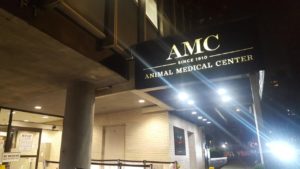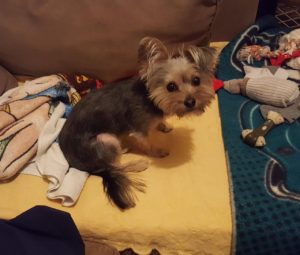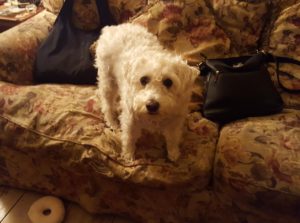Prepare Your Pets For Post-quarantine Life! Tips from NYC’s Animal Medical Center
NEW YORK (1010 WINS) If there have been any winners during the virus crisis it’s definitely been house pets. But now that we’re starting to reopen, folks aren’t going to be home all day and that could cause problems with your pet. Manhattan’s Animal Medical Center is out with recommendations for pet parents to prepare your furry family member for post-quarantine life.
 While some pets many not have appreciated you invading their space for the past few months, many were likely thrilled to have you around, according to AMC Veterinarian Dr. Ann Hohenhaus. As a result, once you go back to work, they may experience separation anxiety and need to be taught how to be alone again.
While some pets many not have appreciated you invading their space for the past few months, many were likely thrilled to have you around, according to AMC Veterinarian Dr. Ann Hohenhaus. As a result, once you go back to work, they may experience separation anxiety and need to be taught how to be alone again.Dr Hoehenhaus recommends the following:
Create a space just for your pet
“When we all got sent home to work from home, all of us created a little space, whether it was a corner of the living room or a desk in the bedroom so that we had a space we could call our own,” Dr. Hoehenhaus told 1010 WINS. “Be sure your pet has a space they can call their own.” This could include their own bed or a dog crate where they feel safe. For cats, she recommends a place where they can go “up and in” like a cat tree with a house at the top.
Practice going out without your pet
 “That’s harder for us right now because New York is only in phase one of coming back online, but you can put your mask on, take your hand sanitizer and go for a walk or run an errand, and leave your pet at home” says Dr. Hoehenhaus. Start with short trips out and gradually increase the time they’re alone, so they get used to being by themselves.
“That’s harder for us right now because New York is only in phase one of coming back online, but you can put your mask on, take your hand sanitizer and go for a walk or run an errand, and leave your pet at home” says Dr. Hoehenhaus. Start with short trips out and gradually increase the time they’re alone, so they get used to being by themselves.
Let’s face it, we love being around our pets just as much as they love having us 24/7. So how you behave can determine how they respond. Dr. Hoehenhaus advises not to make a production number about leaving the house. “When you’re getting ready to leave, what you don’t want to do is say ‘oh no, I have to leave you, this is terrible’ and then give them 50 treat,” says Dr. Hoenhaus, who recommends using food, but as a distraction. “When you’re getting ready to leave he house, that is the time to feed your pets or to give them one of those feeding puzzle toys so that when you leave they think, this is a good deal, because she’s leaving and I’ve got my Kong filled with frozen peanut butter.”
The same goes for coming back. Don’t make a big deal about it by rushing to greet your pet. “Come in, put your stuff down. Put your yoga pants on because it’s the first time you will have been wearing yoga pants in 100 days. And then, when you’re all settled, that’s the time to interact with your pet so they don’t get all wound up when you come home.”
Hear the full interview with Dr. Hoehenhaus here:
Readjusting to noise
Phase one brings back construction in the city, so after three months of unusual quiet, New York is now, well, New York again. At least when it comes to the noise. If you’ve got a sound sensitive pet, Dr. Hoenhaus suggests shutting windows and and turning on the air conditioner or a fan to create white noise to mask construction sounds. She also suggests using music specifically designed to calm pets. These cds are re-mastered to use pitches and frequencies for cats and dogs that humans cannot hear and can be very soothing to animals who are either alone or who need the ambient noise drowned out.
Special advise for birds
Dr. Hoehenhaus notes that birds are flock animals and so for housepets, the human becomes their flock. Once you go back to work, that means they’re suddenly back in their cage and that can bring on anxiety. “You need something to keep that bird entertained during the day. Do things like leaving the TV on, leave music on, give the bird new toys. Be sure they’ve got things to do other than pick their feathers out,” says Dr. Hoehenhaus.
 Use technology to check in on your animal
Use technology to check in on your animal
To ease separation anxiety for you both, consider getting a treat dispensing video camera that allows you to see and interact with your pet and even toss them a treat remotely.
Phase one reopening means continuing to work remotely for many, and because entering the next phases are contingent upon the containment of Covid-19, Dr. Hoehenhaus recommends starting this process now, so you don’t find yourself and your pet going cold turkey when you get the green light to head back to work. As always, if your pet shows signs of distress that do not abate, seek medical attention from your Veterinarian.
Get more pet health tips from AMC’s Usdan Institute for Animal Health Education HERE.






